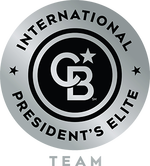Buying a House in St. Louis, MO
Table of Contents
Preparing to buy
- Determine a monthly budget.
- Determine your down payment funds available.
- Check your credit. Pay off any past due collections, and eliminate high balances on credit cards.
- Get pre-approved for a home loan.
Pre-Qualified vs. Pre-Approved
Pre-Qualified: In order to be pre-qualified, a lender may or may not check your credit score and won’t require documentation, only going off what you tell them. This will give you an idea of what you could qualify for, but when you’re serious about buying, you’ll need to get pre-approved.
Pre-Approved: To be pre-approved, the lender will pull your credit and ask you for documentation to verify your finances. Before making an offer on a house, it is best to get pre-approved to show sellers your offer is serious and that a lender has already approved you for enough money to purchase the home.
Pre-Qualified vs. Pre-Approved
Conventional Loan
The most common home loan type, offered through private lenders, typically requires a minimum of 5% down.
VA Loan
VA loans are designated for veterans, spouses, and reservists, offered through private lenders, and guaranteed by the U.S. Department of Veteran Affairs.
FHA Loan
FHA loans are designed for those with high debt-to-income ratios and low credit scores. They are commonly issued to first-time homebuyers, but you don’t need to be a first-time buyer to use an FHA Loan. FHA loans are offered by FHA-approved lenders only and backed by the Federal Housing Administration. This loan requires a minimum 3.5% down payment.
USDA Loan
USDA loans are for homebuyers in designated rural areas, backed by the U.S. Department of Agriculture. These loans do not require any down payment, but there are limitations on income and assets in order to qualify.
| TYPE OF LOAN | DOWN PAYMENT | TERMS | MORTGAGE INSURANCE | MINIMUM CREDIT SCORE |
|---|---|---|---|---|
| CONVENTIONAL | 5 - 20% | 15 - 30 Years | On down payments under 20% | 620 |
| FHA | 3.5 - 20% | 15 - 30 Years | For 11 years or life of the loan | 620 |
| VA | None | 15 - 30 Years | None | 640 |
| USDA | None | 15 - 30 Years | None | 640 |
How to Choose a Lender
Interviewing mortgage lenders is important in determining what type of home loan is best for you. Not all lenders are the same, and the type of loans available, interest rates, and fees can vary.
Here are some questions to consider when interviewing lenders:
- Which types of home loans do you offer?
- Do I qualify for any special programs or discounts?
- What estimated closing costs can I expect to pay?
- What is your average loan processing time?
Home Loan Application - Documents Checklist
To determine loan eligibility, lenders typically require the following types of documents from each applicant:
INCOME:
- Federal tax returns: last 2 years
- W-2s: last 2 years
- Pay stubs: last 2 months
- Any additional income documentation: pension, retirement, child support, Social Security / disability income award letters, etc
ASSETS:
- Bank statements: 2 most recent checking and savings account statements
- 401(k) or retirement account statement and summary
- Other assets: statements and summariesof IRAs, stocks, bonds, etc
OTHER:
- Copy of driver's license or ID and Social Security card
- Addresses for the past 2 - 5 years and landlord's contact info if applicable
- Student loan statements: showing current and future payment amounts
- Documents relating to any of the following if applicable: divorce, bankruptcy, collections, judgements or pending lawsuits
PLEASE NOTE:
Each Person and Home Loan is Unique, this list is a start, your lender WILL request other documentation pertinent to YOUR specific situation.
Finding Your Dream Home
Create a list of what you want in your new home. Include must-haves as well as what you would like to have but aren’t deal-breakers.
House Hunting Tips
1. Investigate the Area
Drive around neighborhoods that interest you to get a feel for the area, how the homes are cared for, what traffic is like, etc.
2. Ask Around
Talk to family, friends, and co-workers to see if anyone might know of a house for sale in an area you’re interested in. They may even know someone thinking about selling who hasn’t yet put their house on the market.
3. Keep an Open Mind
Finding your dream home isn’t always an easy task! Have a priorities list but keep an open mind when viewing houses.
4. Take Pictures & Notes
When you visit multiple houses, it can be difficult to remember specific details about each one. Take photos and notes while touring houses so that you can reference them later when comparing the properties you’ve seen.
5. Be Ready to Make an Offer
When you find a home you want to buy, keep in mind that others may also be interested in it. Be ready to make a solid offer quickly in order to have the best chance at getting that home.
Making an Offer
When we find a home you’re interested in buying, we will quickly and strategically place an offer. There are several factors to consider that can make your offer more enticing than other offers:
Offer a Competitive Price
We will decide on a reasonable offer price based on:
- Current market conditions
- Comparable properties recently sold in the area
- The property value of the house
- The current conditions of the house
Paying in Cash vs. Loan
Paying in cash versus taking out a loan offers a faster closing timeline and fewer chances of issues arising. Offering to pay in cash can be more appealing to sellers.
Put Down More Earnest Money
An offer that includes a larger earnest money deposit presents a more serious and competitive offer.
Create Your Own Boundaries
Decide before emotions get involved and you are standing inside a home you dream of making yours. Decide now on terms like your maximum budget and whether you are willing to forgo inspection contingencies.
Offer a Shorter Closing Timeline
Be prepared by being fully underwritten by your lender and asking them how quickly they can close for you. This will help you know how flexible you can be for each situation ahead of time.
Negotiations
A seller can accept your offer, decline your offer, or come back with a counteroffer. If they send you a counteroffer, be prepared to negotiate to come up with reasonable terms for both parties. This process can go back and forth until an agreement is made.
Under Contract
Once you and the seller have agreed on terms, a sales agreement is signed, and the house is officially under contract. Here are the steps that follow:
Pay Earnest Money
A neutral third party, typically a title company, will hold your earnest money deposit. They will manage all the funds and documents required for closing, and your deposit will go towards your down payment, which is paid at closing.
Schedule a Home Inspection
Home inspections are optional but highly recommended to make sure that the home is in the condition for which it appears. Inspections in the state of Missouri are typically completed within 10 days after signing the sales contract, but the inspection timeframe will depend on what is in your offer.
Renegotiate if Necessary
The home inspection will tell you if any dangerous or costly defects in the home need to be addressed. You can then choose to either back out of the deal completely, ask for the seller to make repairs, or negotiate a lower price and handle the repairs yourself.
Complete Your Mortgage Application
Once you’ve agreed to the final terms, it’s time to finalize your loan application and lock in your interest rate if you haven’t already. You may need to provide additional documentation to your lender upon request.
Order an Appraisal
Your lender will require an appraisal to confirm that the home is worth the loan amount. The appraisal considers factors such as similar property values, and the home’s age, location, size, and condition to determine the property’s current value.
What Not to Do During the Home Buying Process
It’s extremely important not to do any of the following until after the home-buying process is complete:
- Buy or Lease a Car
- Change Jobs
- Miss a Bill Payment
- Open a Line of Credit
- Move Money Around
- Make a Major Purchase
- Make a lot of purchases on credit cards
Any of these types of changes could jeopardize your loan approval. It’s standard procedure for lenders to also do a final credit check before closing.
Final Steps Before Closing
Insurance Requirements
Most lenders require both homeowner’s insurance and title insurance. See below for more details on insurance.
Closing Disclosure
At least 3 days before closing, lenders are required to provide you with a Closing Disclosure with your final loan terms and closing costs for you to review. Closing costs for the buyer typically range from 2-5% of the purchase price, including lender fees, title insurance, title work, homeowners insurance, taxes, HOA dues if applicable, etc.
Final Walk-Through
Within 4 days of closing, we will do a final walkthrough of the home before signing the final paperwork. This last step is to verify that no damage has been done to the property since going under contract, that any agreed-upon repairs have been completed, and that nothing from the sales contract has been removed from the home.
Homeowners Insurance
Why do you need homeowners insurance?
Homeowners insurance protects your home and possessions against damage and theft and is required by lenders before finalizing your loan. Policies vary and are completely customizable, so it’s recommended to get quotes from multiple companies to compare prices, coverage, and limits.
What does homeowners insurance cover?
Homeowners insurance typically covers destruction and damage to a home’s interior and exterior caused by fire, hurricanes, lightning, or vandalism. It also covers loss or theft of possessions and personal liability for harm to others.
What doesn’t it cover?
Most policies do not cover flood or earthquake damage; you may need to purchase an additional policy for this type of coverage.
What are policy rates based on?
Rates are mostly determined by the insurer’s risk that you will file a claim. The risk is based on your personal history of claims, the frequency and severity of claims, past history of claims on the home, neighborhood statistics, and the home’s condition.
How can you qualify for discounts?
Many insurance companies offer discounts to seniors and customers who have multiple policies with them, such as auto or health insurance. Having a security system, smoke alarms, and carbon monoxide detectors can also lower annual premium rates. When getting quotes, be sure to ask each company about its discounts and cost-saving options.
Title Insurance
What is title insurance?
Title insurance protects the lender and/or homeowner from financial loss against claims regarding the legal ownership of a home.
How does title insurance coverage work?
There are two types of title insurance: one for lenders and one for homeowners. Lenders require a lender’s title insurance policy, but it does not cover you, the buyer. A separate homeowners policy is needed to protect yourself from a claim on your home and from being held financially responsible for possible unpaid property taxes from previous owners.
Is a title search sufficient?
While most lenders require a title search, title insurance ensures that if anything is missed during the search, those insured will be protected if any legal issues arise.
42 Questions to Ask a Buyer’s Agent in St. Louis, MO
Closing Day
On the day of closing, you’ll review and sign the final paperwork and submit a cashier’s check (or previously arranged wire transfer) to pay the remaining down payment and closing costs.
Items to Bring to Closing:
- Government Issued Photo ID
- Certified Funds or Cashier's Check






